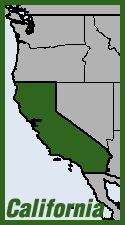 Entertainment Weekly's Inside TV blog reports July 20 that the Discovery Channel has announced a "docu-soap reality show" entitled Weed Wars, set in Oakland's Harborside Health Center, the USA's largest medicinal cannabis distributorship. Set to air this fall, Weed Wars will follow the day-to-day dealings of Steve DeAngelo, owner of the establishment, which serves some 80,000 clients.
Entertainment Weekly's Inside TV blog reports July 20 that the Discovery Channel has announced a "docu-soap reality show" entitled Weed Wars, set in Oakland's Harborside Health Center, the USA's largest medicinal cannabis distributorship. Set to air this fall, Weed Wars will follow the day-to-day dealings of Steve DeAngelo, owner of the establishment, which serves some 80,000 clients.

 New Jersey Gov. Chris Christie held a press conference July 19 to announce his plans to "begin work immediately" on his state's pending medical marijuana program. "We're moving forward with the program as it was set up," said Christie, with the expectation that licensed Alternative Treatment Centers could be up and operating as early as the end of 2011. Christie said he believed "the need to provide compassionate pain relief to these citizens of our state outweighs the risk we are taking in moving forward with the program." Christie's announcement comes in spite of threats from US Attorneys on the issue and a June 29
New Jersey Gov. Chris Christie held a press conference July 19 to announce his plans to "begin work immediately" on his state's pending medical marijuana program. "We're moving forward with the program as it was set up," said Christie, with the expectation that licensed Alternative Treatment Centers could be up and operating as early as the end of 2011. Christie said he believed "the need to provide compassionate pain relief to these citizens of our state outweighs the risk we are taking in moving forward with the program." Christie's announcement comes in spite of threats from US Attorneys on the issue and a June 29  The average income of Mexican households fell by 12.3% between 2008 and 2010, the government's National Statistics and Geography Institute (INEGI) reported on July 15. The richest households generally lost the most in percentages, but poorer households suffered more because their income was already so low, according to the National Survey of Household Income and Expenditure, which the INEGI conducts every two years. The decline in income reflects a 6.1% contraction of the Mexican economy in 2009 in the midst of a world economic crisis that started in the US; the Mexican economy recovered partially in 2010 with a 5.4% expansion. (La Jornada, Mexico, July 16)
The average income of Mexican households fell by 12.3% between 2008 and 2010, the government's National Statistics and Geography Institute (INEGI) reported on July 15. The richest households generally lost the most in percentages, but poorer households suffered more because their income was already so low, according to the National Survey of Household Income and Expenditure, which the INEGI conducts every two years. The decline in income reflects a 6.1% contraction of the Mexican economy in 2009 in the midst of a world economic crisis that started in the US; the Mexican economy recovered partially in 2010 with a 5.4% expansion. (La Jornada, Mexico, July 16) The East Bay Express'
The East Bay Express'  We have noted before that the
We have noted before that the  The California Department of Corrections and Rehabilitation (CDCR) reports that as of July 8, at least 6,600 prisoners in at least 11 of the state’s 33 prisons have joined the hunger strike initiated by some 400 inmates at the Pelican Bay facility on July 1. With large numbers of inmates striking at Corcoran, Folsom, Tehachapi, Centinela, Calpatria and San Quentin state prisons, advocates and lawyers working to support the strike claim the number is much higher, and are pressing the CDCR to enter into negotiations with prisoners at Pelican Bay and immediately implement their demands.
The California Department of Corrections and Rehabilitation (CDCR) reports that as of July 8, at least 6,600 prisoners in at least 11 of the state’s 33 prisons have joined the hunger strike initiated by some 400 inmates at the Pelican Bay facility on July 1. With large numbers of inmates striking at Corcoran, Folsom, Tehachapi, Centinela, Calpatria and San Quentin state prisons, advocates and lawyers working to support the strike claim the number is much higher, and are pressing the CDCR to enter into negotiations with prisoners at Pelican Bay and immediately implement their demands.





Recent comments
1 week 5 days ago
1 week 5 days ago
4 weeks 6 days ago
5 weeks 5 days ago
9 weeks 5 days ago
13 weeks 4 days ago
17 weeks 4 days ago
18 weeks 2 days ago
28 weeks 2 days ago
32 weeks 3 days ago